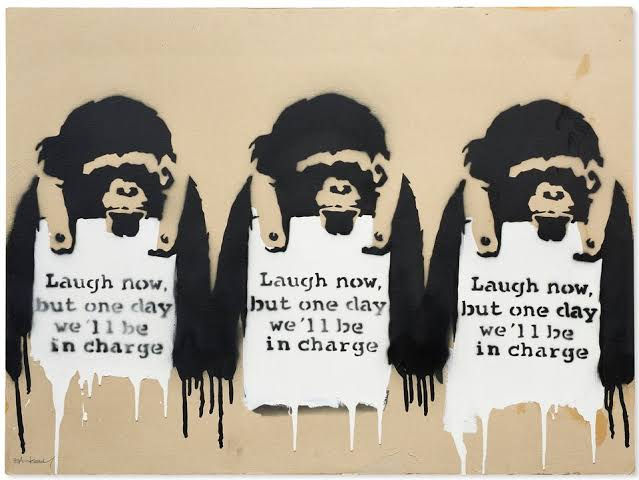Synonymous wordmarks are deceptively similar and confusing for a purchaser: Delhi High Court
- IP News Bulletin
- Oct 9, 2022
- 3 min read
Case Title: Vinita Gupta v. Amit Arora
In a recent order interpreting synonymy in a case involving two similar trademarks - APPLESTREE and APPLEPLANT, which belong to different manufacturers, the Delhi High Court stated that the words 'plant' and 'tree' are a classic example of synonymy where reading one would bring to mind the other and lead to purchaser confusion.
According to Justice Jyoti Singh, the study of semantic theory dates back to W. Humboldt, the founder of common linguistics, and the theory suggests that the words in the English language system are so related that they form a complete lexical system and grouping.
"Synonymy would cover the semantic field where words have nearly the same meanings such that they can be interchanged in some degree, and the most common cases under th head are of relative synonymy as it is difficult to find words which are absolute synonyms of each other," said Justice Singh.
"As an illustration, under this concept, purple, pink, white, brown, violet, etc. would fall under the genus 'colours,' and knives, spoons, forks would have a semantic relationship with the genus 'cutlery,'" the court added.
The court made the observation in an interim order on a trademark suit filed by an abrasive products manufacturer who sold his tools under the trademark ApplesTree.
The plaintiff has accused the defendant of using similar trademarks such as ApplePlant and NuApplePlant to market identical products. Commenting on the use of the terms 'plant' and 'tree' in the two trademarks, the court stated that confusion will be increased where they are used for identical products with identical purchaser classes and trade channels.
No purchaser will dissect the trademark while purchasing products such as Abrasive Paper to find a scientific (botanical) difference between a PLANT and TREE, especially when both are otherwise synonymous. A purchaser of average intelligence and imperfect recollection would judge the trademark based on its overall and first impression, and the similarity in concept is likely to cause confusion."
In the suit filed by Vinita Gupta, proprietor of a firm manufacturing and selling abrasive paper and other products under its registered trademark, the court issued an interim injunction restraining the sale, advertisement, or promotion of any product under the mark 'APPLEPLANT' or any other mark deceptively similar to 'APPLESTREE.'
Gupta accused Amit Arora of using the deceptively similar trademark 'NUAPPLEPLANT' for marketing identical products, claiming that the registered trademark 'APPLESTREE' had been used by them since 2008 and had become well known due to huge sales of its products.
According to the court, after learning of Arora's use of the trademark for similar products, a legal notice was sent to him on January 27, 2022.
The suit claims that Arora continued to use the impugn trademark, prompting the filing of the suit.
While granting an interim injunction in Gupta's favour, the court reasoned that the word APPLE is a prominent part of Gupta's trademark and that copying it, especially when the competing products are identical, would result in deceptive similarity.
The court stated that "Defendant (Arora) has copied the essential part of Plaintiff's trademarks and has simply added the suffix PLANT as well as a prefix NU thereto."
The court also stated that when compared and seen visually, the mark NUAPPLEPLANT is deceptively similar to the mark APPLESTREE.
"In my opinion, learned counsel for the Plaintiff is also correct in contending that not only are the competing marks visually similar, but they are also similar in concept, i.e. semantic similarity," the court stated.
The adoption of the contested trademark by Arora appears to be dishonest, according to the court.
It also stated that he has not been able to provide a plausible explanation for how he came across and decided to use the mark APPLE as part of its trademark, despite the fact that the word has no association with the products in question, such as abrasive papers.
Based on the two trademarks, the Court's initial conclusion is that the Defendant attempted to pass off his goods under the contested trademark by imitating the Plaintiff's packaging/label in terms of colour combination, background colour, graphics, and so on "According to the interim order.
The court also stated that adding the prefix 'Nu' to the contested trademark cannot remove the semantic similarity between the two competing marks and make them distinguishable."
Plaintiff, in my opinion, has established a prima facie case for an injunction.
The balance of convenience also favours the Plaintiff, who has been using the trademark since 2018, i.e., before the Defendant, who has dishonestly chosen to adopt a deceptively similar trademark in 2019 in respect of identical goods, with the intent of passing off his goods as those of the Plaintiff. If the interim injunction is not granted, the Plaintiff will suffer irreparable harm, according to the court.












Comments